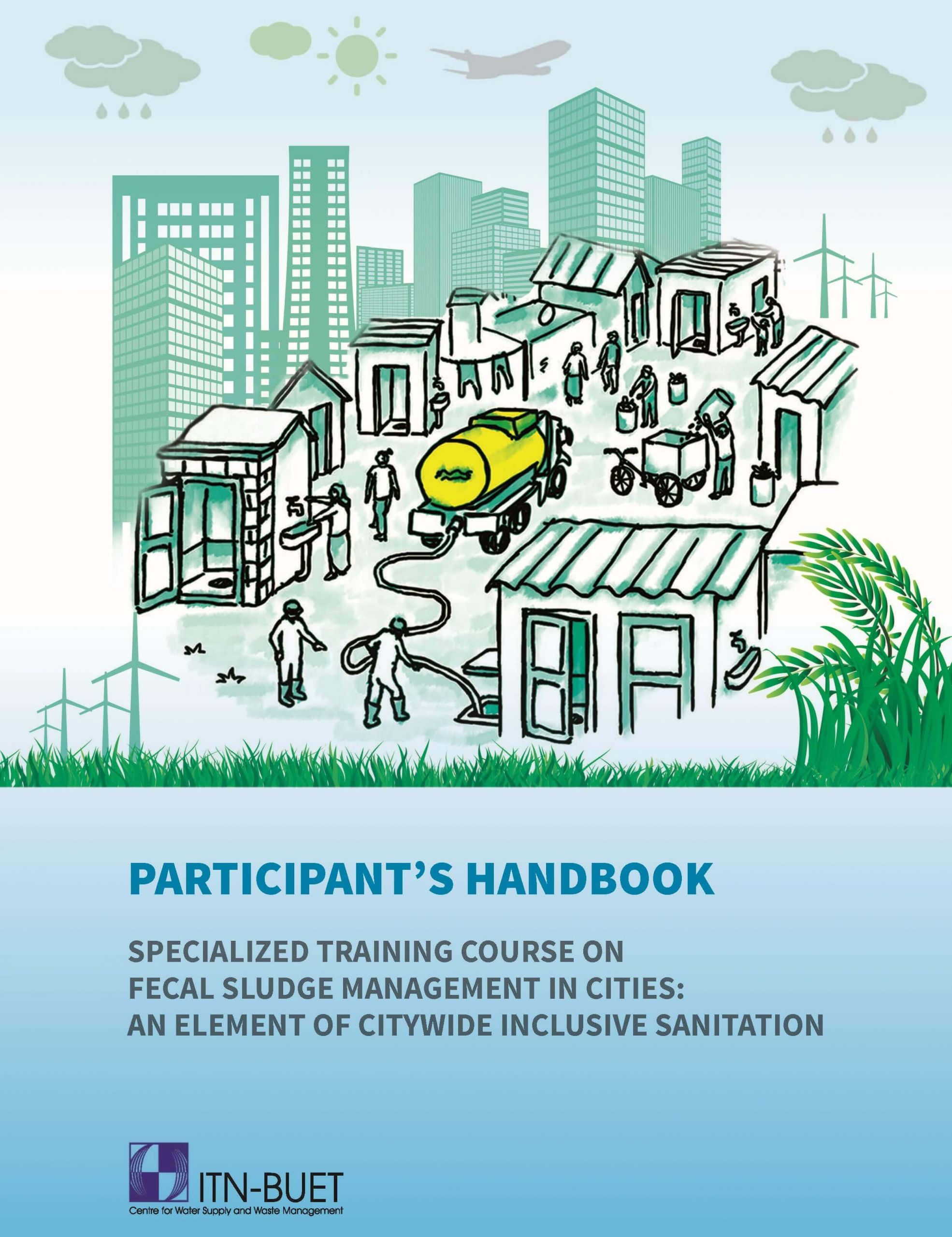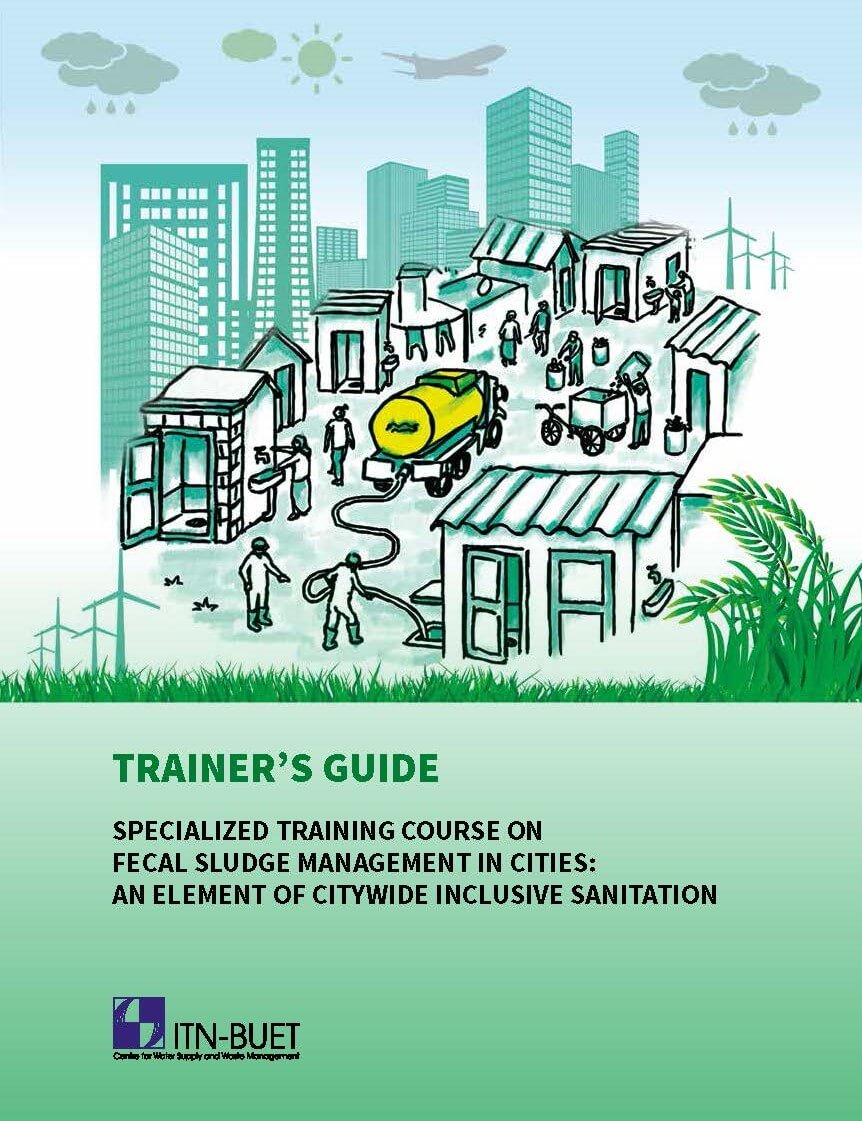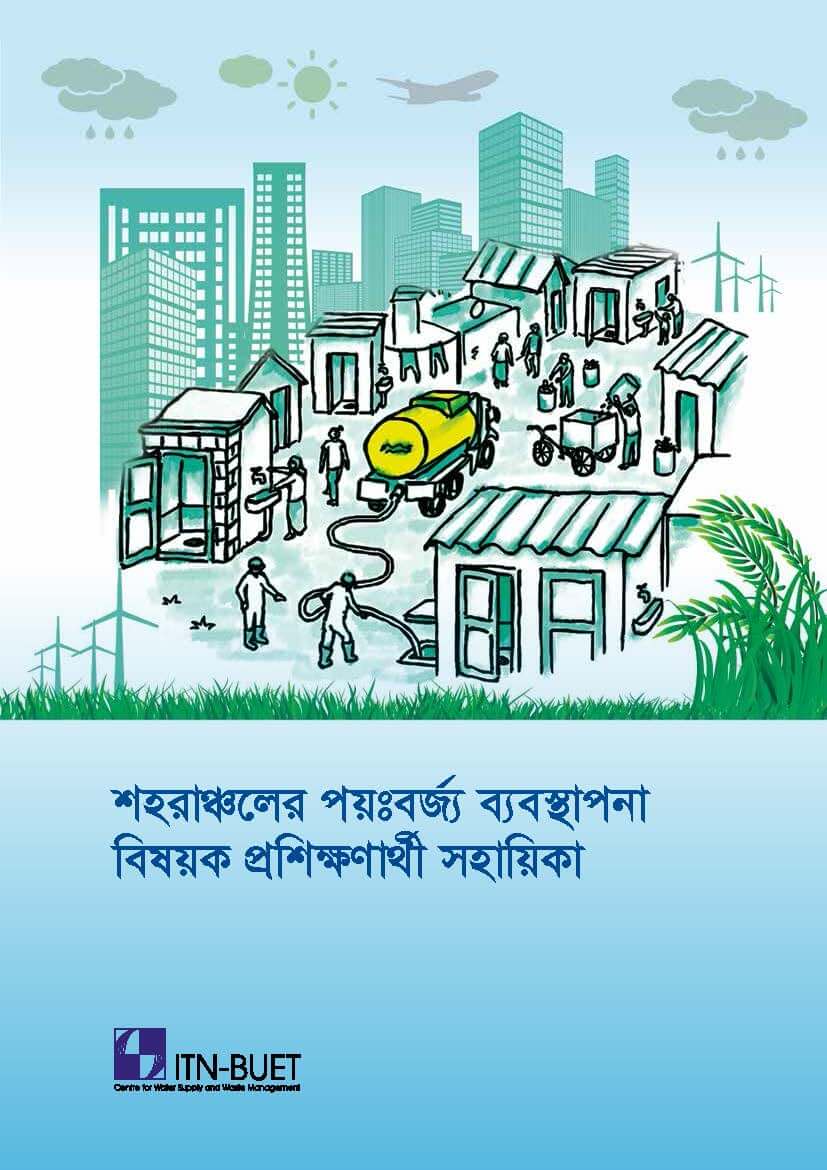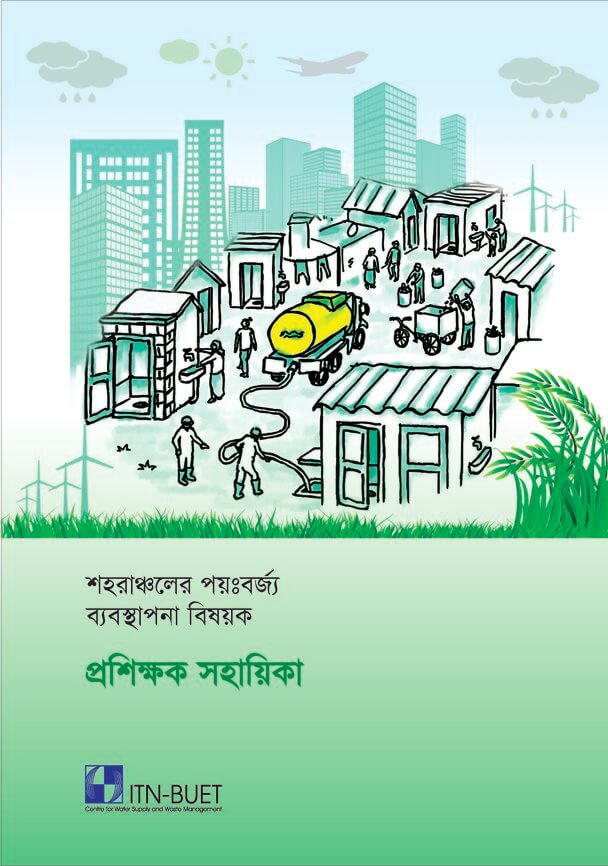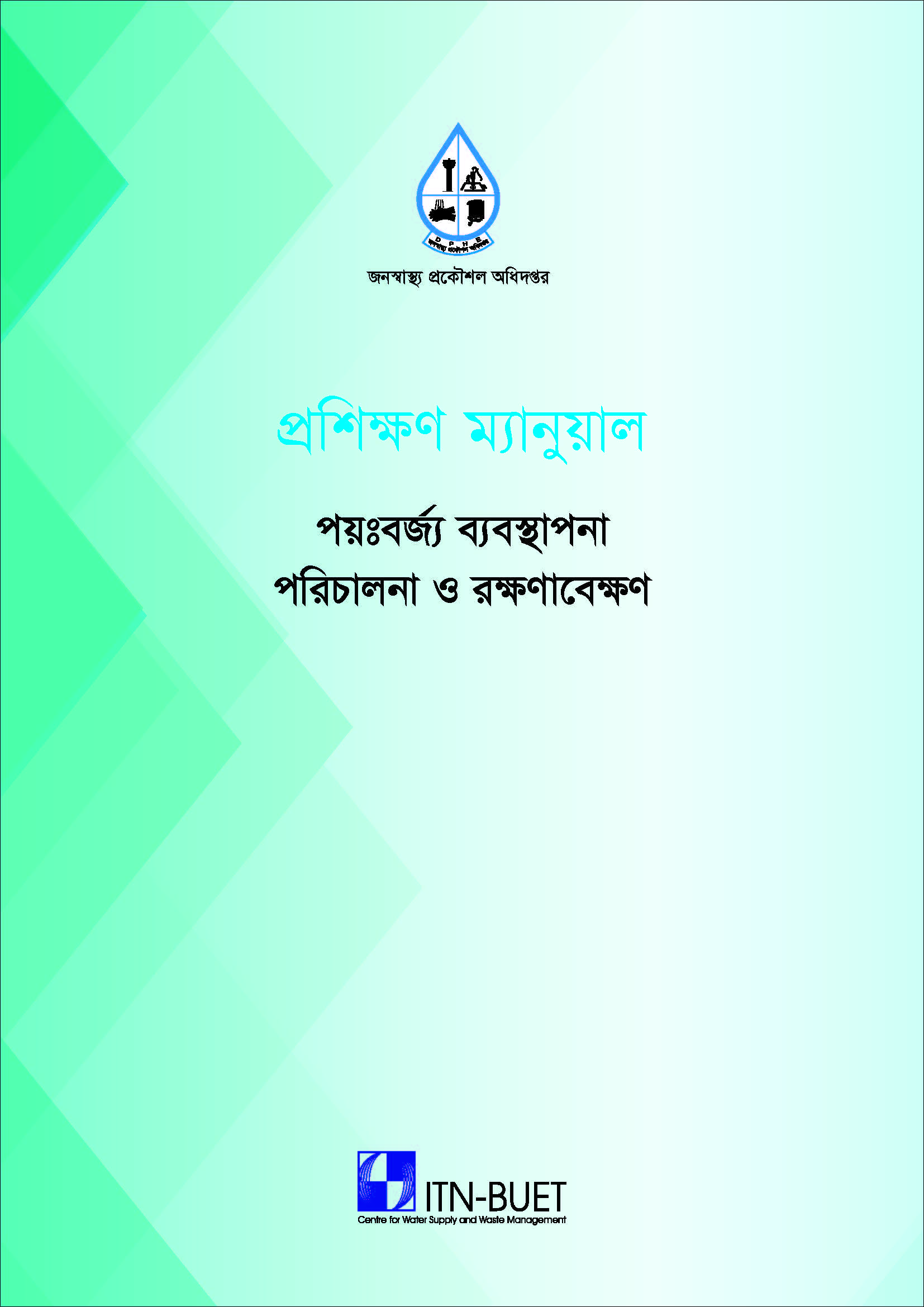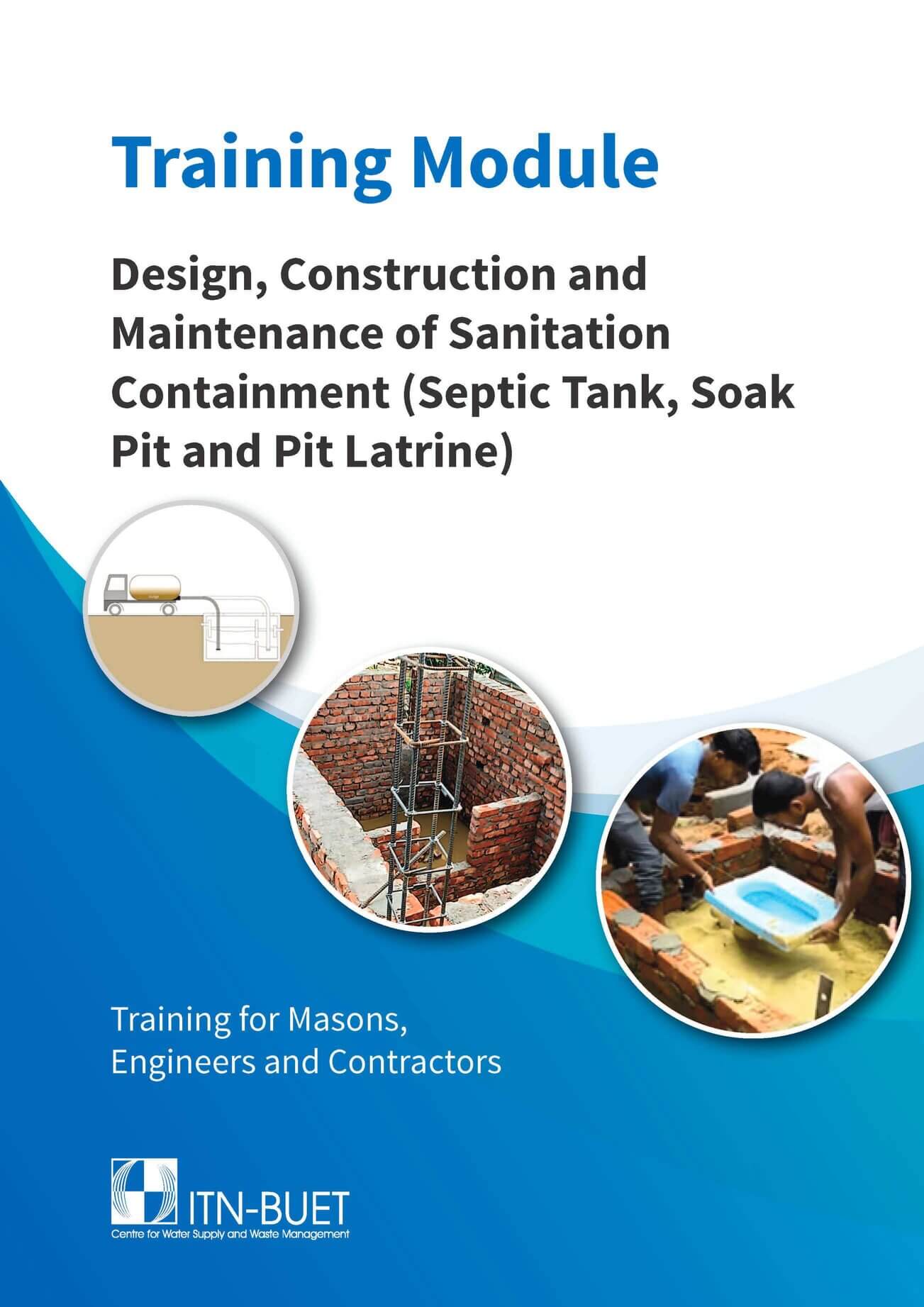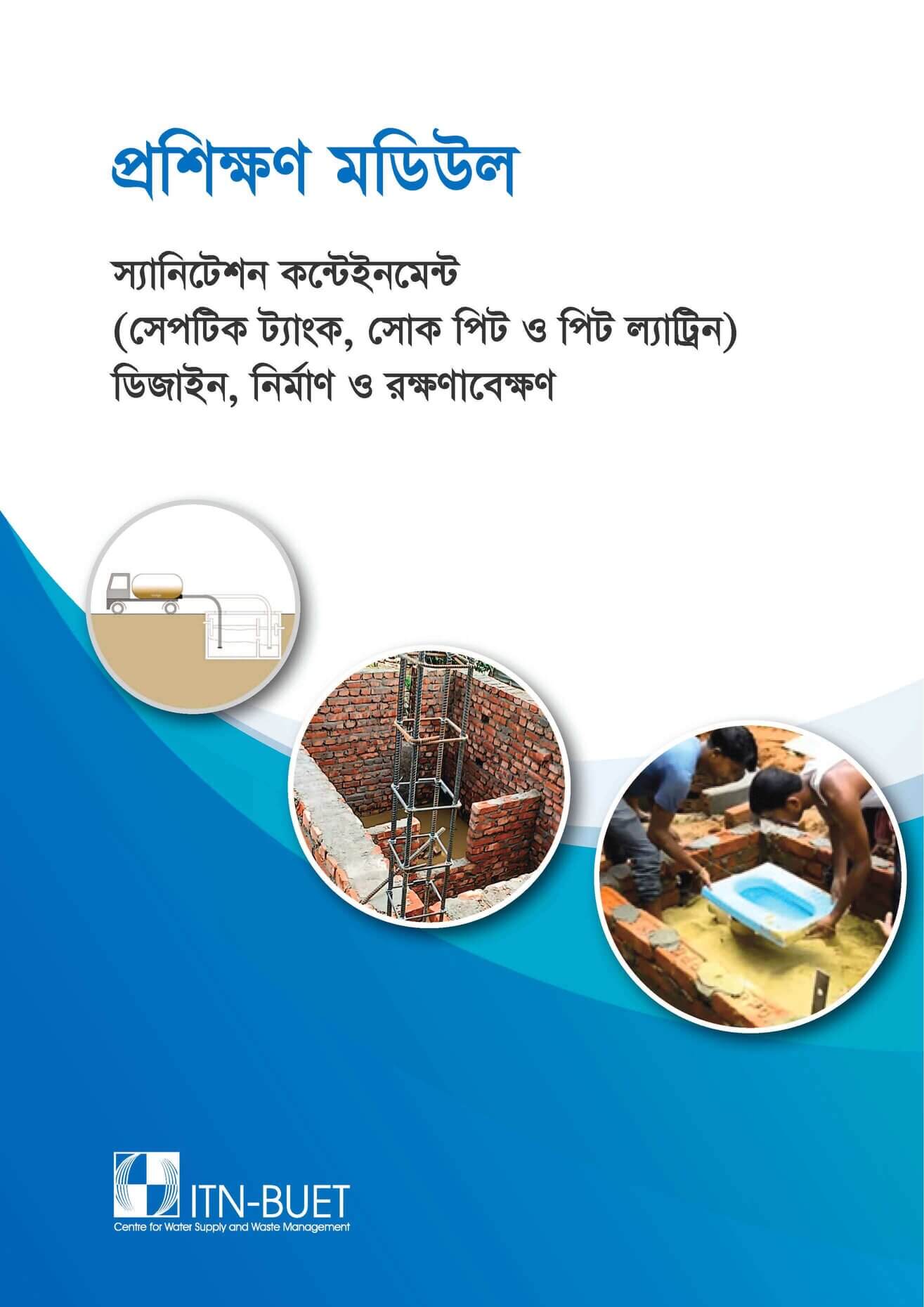The “Specialized Training on Fecal Sludge Management in Cities: An Element of Citywide Inclusive Sanitation” targets engineers and officials from Paurashava and relevant government implementing agencies. The training addresses both technical and non-technical aspects of FSM using lecture modules and interactive learning content.
The outcomes of the training are as follows:
– Identify sanitation as a priority and be motivated to seek a solution.
– Describe fecal sludge management in relation to the entire sanitation service chain.
– Explain the stakeholders and their power-interest matrix.
– Recognize a social and gender-inclusive approach in planning for fecal sludge management.
– Classify different technologies along the FSM service chain and identify O&M and OHS standards.
– Illustrate capacity-building and social mobilization strategies.
– Prepare an FSM Action Plan as the next course of action to mainstream FSM in the Paurashava.
The training provides participants with a comprehensive framework for the FSM planning process. It highlights the importance of proper sanitation, analyzes the contexts and necessity of including social and gender aspects, and creates an enabling environment for preparing an FSM plan. The technical aspects of the FSM service chain are thoroughly addressed in the training program. Participants design the service and financial models for inclusive FSM services in a city. An overview of the necessities of capacity building, occupational health and safety of service providers, operation and maintenance, and social mobilization completes the training’s comprehensive approach.
The Participant’s Handbook reflects the training’s learnings and is a useful aid for participants to utilize the knowledge from the Training Course in the future. This book has been developed using various reference materials, documents, case studies, national reports, and field experiences. The standard materials consulted are listed at the end of the document. The Handbook provides basic information on the FSM Planning Steps covered in the training. It addresses the concepts of FSM and CWIS, as well as the technical, non-technical, and financial aspects along the service chain, and the operation and maintenance required for successful FSM planning, implementation, and management. Participants will be able to use the Handbook as a resource to implement FSM Action Plans in their cities.
DOWNLOAD PARTICIPANT’S HANDBOOK


